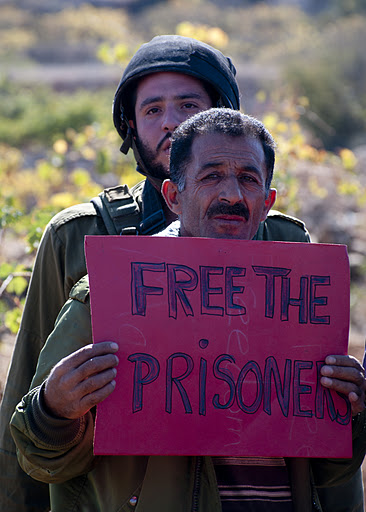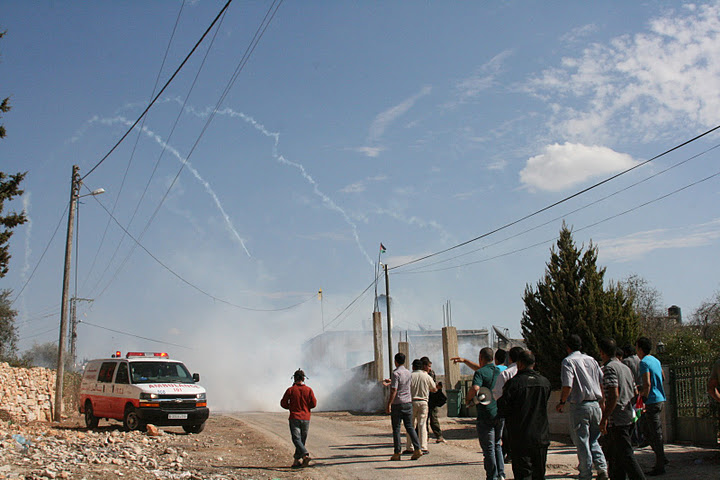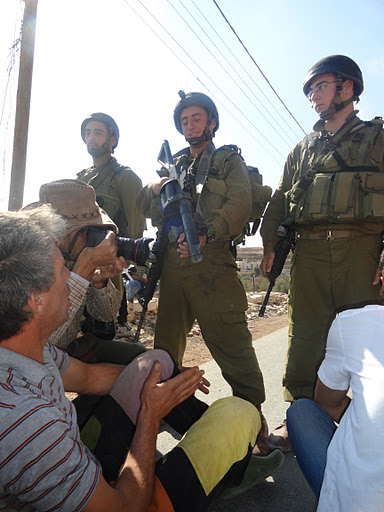Tag: Demonstration
-
Beit Ummar: Settlers throw stones from behind military tear gas
by Anders and Aurelie 30 October 2011 | International Solidarity Movement, 2011 What started as a peaceful demonstration soon erupted into violence when soldiers and settlers from Karmei Tzur settlement attacked a demonstration in Beit Ummar today. The demonstration of around 30 Palestinians and internationals started from the outskirts of the village and continued through a…
-
“With children visible” Israeli military assaults Kufr Qaddoum
by Rana H. 28 October 2011 | International Solidarity Movement, West Bank Soldiers fired teargas directly into crowd at peaceful protesters in Kufr Qaddoum. Internationals and Palestinians, including children, were gathered behind barbed wire that runs across their main road, and were not advancing when soldiers began to fire around ten canisters of tear gas…
-
New Israeli military tactic: Headbutting in Al- Ma’asara
by Alistair George 28 October 2011 | International Solidarity Movement, West Bank The Israeli military violently obstructed a peaceful demonstration against the Israeli separation wall in Al-Ma’sara, near Bethlehem, today. Around 25 Palestinians and a similar number of international observers marched from the village at 12:20 PM today and attempted to reach olive groves on…



